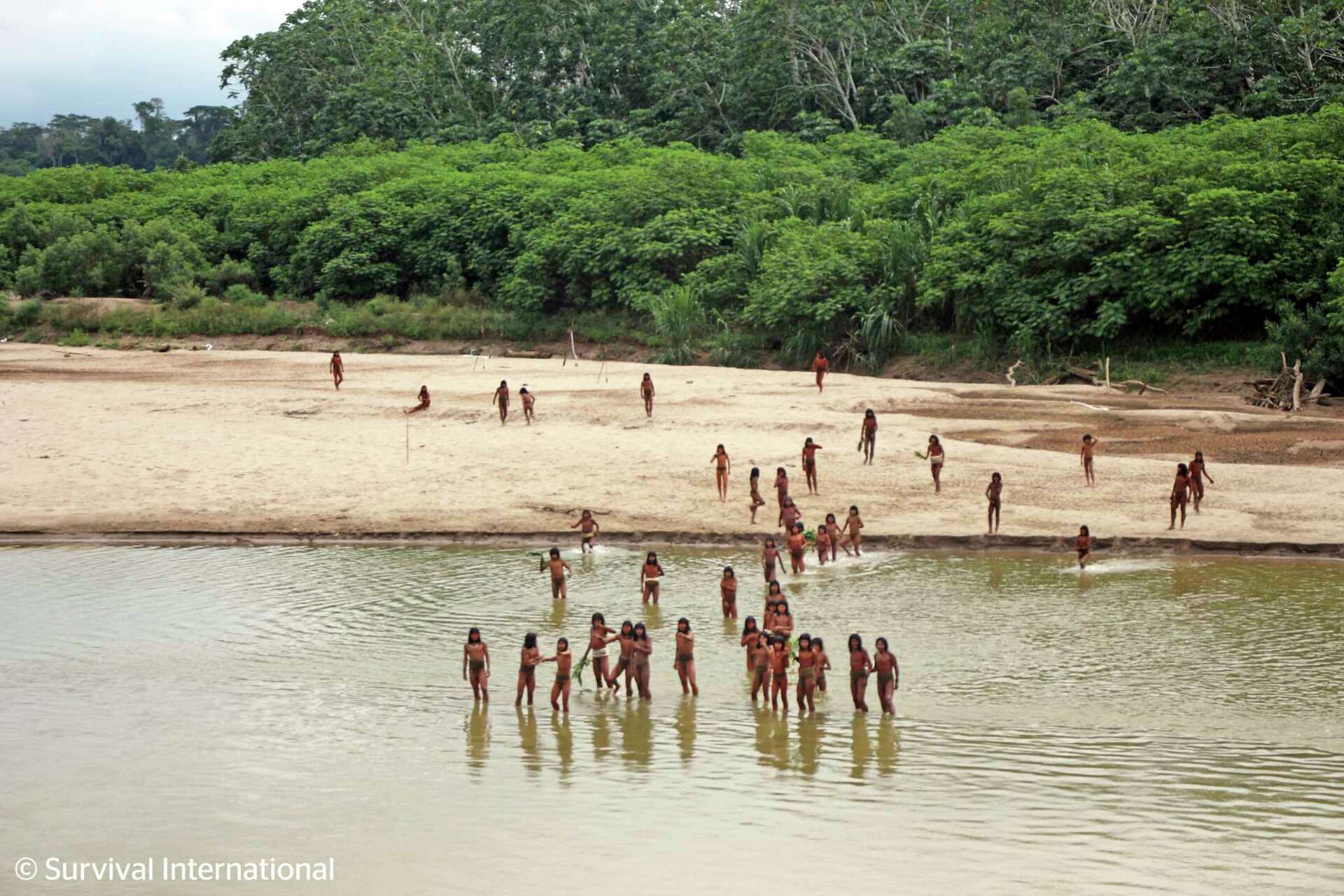
Peru’s reclusive Mashco Piro people used bows and arrows to attack loggers encroaching on their territory in the Amazon, according to a regional indigenous organization. FENAMAD, representing 39 indigenous communities in Cuzco and Madre de Dios regions, said Aug. 5 that it believes illegal logging was taking place on Mashco Piro territory and that one logger was injured in the July 27 attack. Days before the incident occurred, photos emerged of some 50 members of the isolated tribe apparently searching for food on a river beach—which advocacy group Survival International said is evidence that logging concessions are “dangerously close” to its territory. The photo was taken near the Yine indigenous settlement of Monte Salvado on the Río Las Piedras, Tambopata province, Madre de Dios. The Yine are thought to be closely related to the Mashco Piro.
Two loggers were shot with arrows while fishing in the area in 2022, one fatally, in an encounter with presumed Mashco Piro tribal members. That incident took pace on the Río Tahuamanu, like Las Piedras a tributary of the Río Madre de Dios—near where the Madre de Dios Territorial Reserve, created under pressure from FENAMAD to protect isolated peoples, borders a timber concession operated by the logging company Maderera Canales Tahuamanu. Bu the Mashco Piro by definition do not know where the reserve created for them ends, and the loggers are believed to have illegally penetrated the reserve.
Survival International is pressuring Peru’s government to take action to protect the group. “This is a permanent emergency. For the last month we have been seeing the Mascho Piro every two weeks at different points, and in all of them they are surrounded by loggers,” Teresa Mayo, a researcher at Survival International, told the Associated Press. “It’s truly a matter of life and death. And only the government can and has the duty to stop it.”
A 2023 report by the United Nations special rapporteur on the rights of indigenous peoples recalled that Peru’s government had recognized in 2016 that the Mashco Piro and other isolated tribes were inhabiting territories that had been opened to logging concessions. The report expressed concern for the overlap, and protested that the territory of Mashco Piro hadn’t been demarcated out “despite reasonable evidence of their presence since 1999.” (CBS News, ABC, AP)
Alfredo Vargas Pio, head of FENAMAD, said the new photos are “irrefutable evidence that many Mashco Piro live in this area, which the government has not only failed to protect, but actually sold off to logging companies. The logging workers could bring in new diseases which would wipe out the Mashco Piro, and there’s also a risk of violence on either side.”
Several logging companies hold claims on lands believed to be inhabited by the Mashco Piro. Canales Tahuamanu, has built more than 100 miles of roads through Mashco Piro territory in preparation for new logging. Caroline Pearce, head of Survival International, said the operation is “a humanitarian disaster in the making.”
Survival International protests that despite presence of the Mashco Piro, the Forest Stewardship Council has certified the Canales Tahuamanu operation as sustainable and ethical. The organization is petitioning the council to withdraw the certification, with Pearce saying that “failure to do so will make a mockery of the entire certification system.” (YaleEnvironment360)
Most media accounts, including some referenced here, use the term “uncontaced” for groups such as the Mashco Piro, but they are better termed isolated peoples. Despite growing encounters with outsiders and even misguided attempts to “contact” them, these groups actively resist contact.
Photo: Survival International




